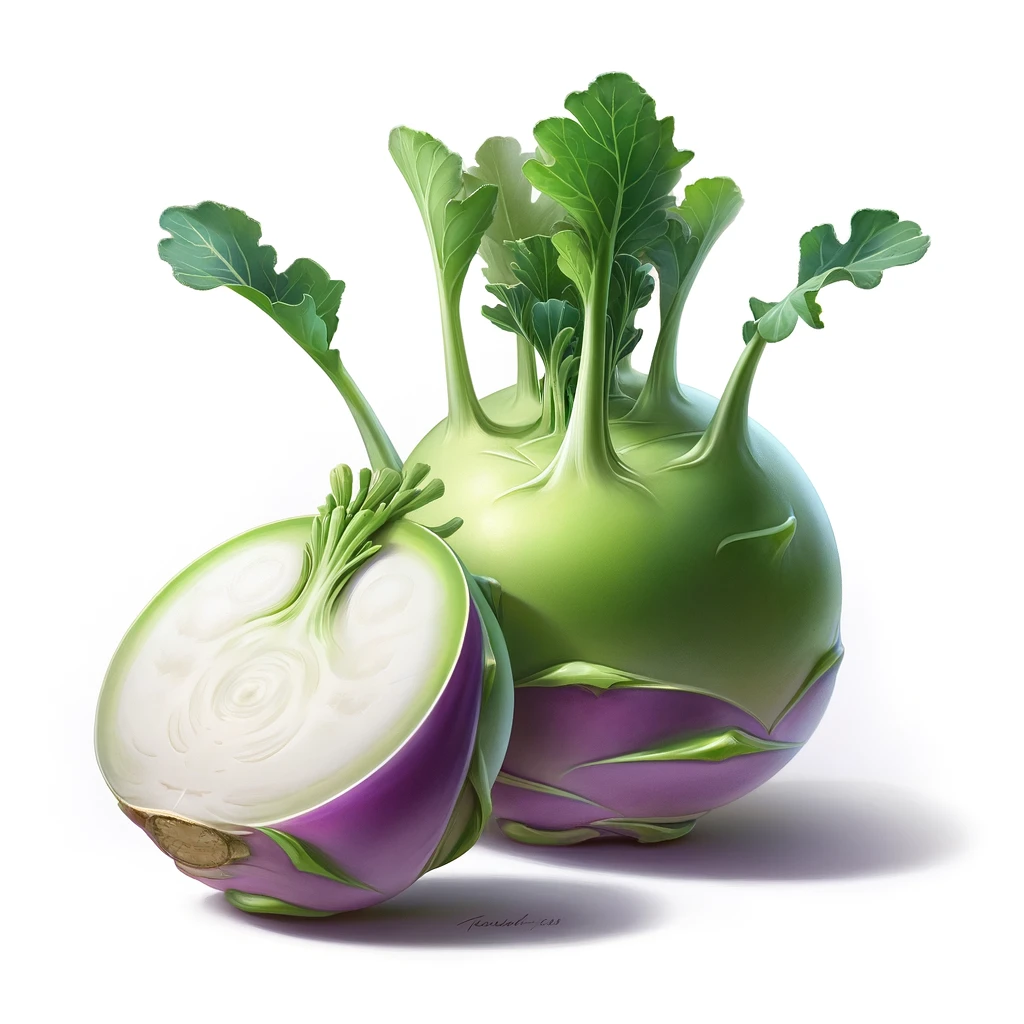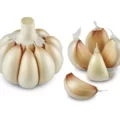Kohlrabi, often referred to as the German turnip, is a cruciferous vegetable that is gaining popularity for its unique taste and impressive nutritional profile. Whether you’re a health enthusiast or just curious about incorporating new vegetables into your diet, kohlrabi is a fantastic option to explore. This blog post will delve into the nutritional content of kohlrabi, its health benefits, and how it can help you achieve your best nutritional outcomes.
Nutritional Content
Kohlrabi is a nutrient-dense vegetable that provides a variety of vitamins, minerals, and other beneficial compounds.
- Vitamins:
- Vitamin C: 62 mg (103% DV) – Essential for immune function, skin health, and antioxidant protection.
- Vitamin B6: 0.2 mg (11% DV) – Important for brain health and metabolism.
- Folate (Vitamin B9): 16 µg (4% DV) – Crucial for DNA synthesis and cell division.
- Minerals:
- Potassium: 350 mg (10% DV) – Helps regulate blood pressure and fluid balance.
- Calcium: 24 mg (2% DV) – Necessary for bone health and muscle function.
- Magnesium: 19 mg (5% DV) – Involved in over 300 biochemical reactions in the body.
- Phosphorus: 46 mg (5% DV) – Essential for the formation of bones and teeth.
- Iron: 0.4 mg (2% DV) – Required for the production of hemoglobin.
- Phytonutrients:
- Glucosinolates: Sulfur-containing compounds that may have cancer-protective properties.
- Isothiocyanates: Derivatives of glucosinolates with anti-inflammatory and antioxidant effects.
- Anthocyanins (in purple kohlrabi): Pigments with strong antioxidant properties.
- Macronutrients:
- Calories: 27
- Carbohydrates: 6.2 grams
- Protein: 1.7 grams
- Fat: 0.1 grams
- Fiber: 3.6 grams
Health Benefits
- Supports Immune Health: Kohlrabi is exceptionally high in vitamin C, which is crucial for a robust immune system. This vitamin helps stimulate the production of white blood cells and functions as an antioxidant, protecting cells from damage by free radicals.
- Promotes Digestive Health: The high fiber content in kohlrabi aids in digestion by promoting regular bowel movements and preventing constipation. Fiber also supports a healthy gut microbiome, which is essential for overall digestive health.
- Enhances Bone Strength: Kohlrabi contains important minerals such as calcium, magnesium, and phosphorus, all of which play a vital role in maintaining strong and healthy bones. These minerals work together to support bone density and prevent conditions like osteoporosis.
- Aids in Weight Management: With its low calorie and high fiber content, kohlrabi can help you feel full longer, reducing the likelihood of overeating. This makes it an excellent addition to a weight management plan.
- Anti-inflammatory and Antioxidant Properties: Kohlrabi is rich in glucosinolates and isothiocyanates, which have been shown to reduce inflammation and oxidative stress in the body. These compounds can help lower the risk of chronic diseases such as cancer and heart disease.
- Supports Heart Health: The potassium content in kohlrabi helps regulate blood pressure by counteracting the effects of sodium. Adequate potassium intake is linked to a lower risk of stroke and other cardiovascular diseases.
- Improves Skin Health: The high vitamin C content supports the production of collagen, a protein that keeps skin firm and elastic. Regular consumption of kohlrabi can contribute to a healthy, youthful complexion.
Culinary Tips and Considerations
Tips to maximize the health benefits of kohlrabi:
- Raw: Enjoy kohlrabi raw in salads or as a crunchy snack. Peel the outer layer and slice it into sticks or cubes.
- Roasted: Roast kohlrabi with olive oil, salt, and your favorite herbs for a delicious and nutritious side dish.
- Stir-fried: Add kohlrabi to stir-fries with other vegetables and lean proteins for a balanced meal.
- Mashed: Use kohlrabi as a low-carb alternative to mashed potatoes by steaming and mashing it with a bit of butter and seasoning.
- Soups and Stews: Incorporate kohlrabi into soups and stews to add texture and nutrients.
Conclusion
Kohlrabi is a nutritional powerhouse that offers a wide array of health benefits. From boosting immune function and promoting digestive health to supporting bone strength and heart health, this versatile vegetable can play a significant role in a balanced diet. By incorporating kohlrabi into your meals, you can take advantage of its rich nutrient profile and support your long-term health and well-being.





